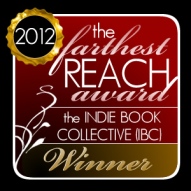The Art of Presenting In-Person Workshops
The Art of Presenting In-Person Workshops
by Jacquie Rogers
We talk a lot about online promotion, but live appearances are important to both building your platform and selling books. This article covers the basics, the Three P’s for conducting successful workshops — Propose, Prepare, Promote and Present a Perfect Program.
What I’m going to say in this article is plan, plan, plan your workshop (or seminar, or white paper, or class — whatever your organization calls it) before each stage along the way: the proposal, the preparation, and the presentation.
Proposal
Each organization has its own culture and its own set of rules regarding what is acceptable and what’s not. In all cases, you’re trying to convince them that they want what you have. (Don’t ever forget WIIFM, What’s In It For Me, in anything you do!) Here are a few tips:
 A catchy title always wins points in your behalf. Examples of my own workshops: Gamblers and Lightskirts; Faeries and Dragons Along the Silk Road (presented with Eilis Flynn); 20 Tips for the Emerging Writer, and Growing Your Audience (both presented with Ann Charles). Note that including a number increases your chances of being selected: Seven Secrets of Selling Your Book would be almost a shoo-in for any writers’ conference program director.
A catchy title always wins points in your behalf. Examples of my own workshops: Gamblers and Lightskirts; Faeries and Dragons Along the Silk Road (presented with Eilis Flynn); 20 Tips for the Emerging Writer, and Growing Your Audience (both presented with Ann Charles). Note that including a number increases your chances of being selected: Seven Secrets of Selling Your Book would be almost a shoo-in for any writers’ conference program director.
Write a short description, remembering that the program director either must want what you have, or you must convince her that she wants what you have. Either way, she’s looking at this proposal from the viewpoint of meeting the needs of all the event’s attendees, and is generally trying to put a balanced program together. If you propose a workshop on characterization and the program director receives five other proposals on the same subject, then your blurb must “speak” to her in a way that the other proposals don’t. Also, don’t forget to include other venues where you’ve presented or are scheduled to present this workshop.
Your bio is not interchangeable with every workshop you present. If you are proposing a workshop on faeries, then show the program director your expertise in that area, which would be an entirely different skill set than if you’re proposing a workshop on career platform building.
Make sure there are two methods to contact you and always list your website. Also, go ahead and attach your handouts if appropriate. Attaching your handouts with the proposal will let the program director know this workshop is well-prepared.
Preparation
Congratulations, your workshop has been chosen! Now it’s time to prepare. Believe me, your audience can always tell if you’re prepared and organized or not. And make no mistake about it—word does get around.
The first thing to do is promote your workshop. Put the appearance on your website and your blog. Post it wherever you hang out—social networks, yahoo groups, the bulletin board at your local community hall. Find other venues of promotion and let people know they’re welcome to come to your fabulous new workshop.
Now for the writing of it. Most workshop attendees learn in a combination of the three methods of learning—aural, visual, and tactile. Standing in front of the room and lecturing is effective for only the aural crowd (~19%) The majority need visual (~46%) and/or tactile (~35%) for a strong learning experience. A flip chart, handout and/or a PowerPoint presentation will go far to hold their attention, so think seriously about incorporating these tools into your repertoire. For our dragon workshop, Eilis brought dragon statues of varying types to pass around. Tactile learners love this.
As for content, stick with the old formula:
Tell them what you’re going to tell them. (Don’t forget WIIFM!)
Tell them.
Tell them what you told them.
There! You have the three sections of your outline already and you didn’t have to do a lick of work. Now just fill in the blanks.
Document your facts and sources, and it’s great to have a handout that includes a bibliography as well as an outline of your talk. Remember to put your name, workshop title, and copyright on all pages of the handout.
Presentation
Even if you’re scared half to death, project the image that you’re happy to be there. After all, the attendees thought enough of you to come, so now you owe it to them to give them what they came for.
Dress appropriately, which means chose clothing just a touch better than what’s expected. If you need to project authority, avoid fuzzy sweaters or warm colors and wear linen, wool, and jewel colors, or earth tones depending on the venue.
If there’s a microphone, use it properly. Your lips should be one to two inches from the mic at all times. Audience members become very annoyed when they can’t hear you because after all, that’s why they’re there. Don’t be afraid of the mic because all it’s doing is enabling you to be heard. Be kind to your workshop attendees and please, let them hear you. (Side note: Don’t ever blow into or tap a mic. It’s bad for the equipment and hurts your audience’s ears. A simple “Hello, can you hear me?” will suffice.)
Walk around and be animated—interact with the audience and let them be part of the presentation. You don’t have to be a crazy person, but listening to a statue isn’t all that interesting, either. Oh, and about the mic, if you’re wired to one spot, still make an effort to interact with the attendees.
When using a PowerPoint presentation, don’t stray from the topics on the page that is currently projected; otherwise, the audience can get confused and besides, it’s more difficult to take notes.
You did it! You’ve given a workshop! Now you can go to the bar and celebrate, right? Eh. Okay, do that, but don’t forget the post-mortem. Ask people to evaluate your talk; what you did right, how you screwed up, and what could be better. Then go to work on making it better and propose this workshop again elsewhere. Or make it into a series of workshops. Make sure your work is used multiple times for maximum benefit to you.
And most importantly, don’t forget to thank your host. Good manners go a long way when it comes to being invited back.
Remember:
- Plan your proposal carefully and give your workshop the best chance you can for it to be selected.
- Prepare your workshop with all types of learners in mind—aural, visual, and tactile.
- Promote the workshop on your blog, website, and social media sites, and don’t forget your local contacts.
- Present your workshop with enthusiasm and energy.
- Thank your audience and thank your host.
Good luck!
Copyright © 2010-2012 Jacquie Rogers
 Jacquie Rogers is a former software designer, campaign manager, deli clerk, and cow milker, but always a bookworm. Reading is her passion—westerns, fantasies, historicals of any era, and all with a dash of romance. While she’s a country girl by birth, she currently lives in suburbia with her very patient husband (important point: they are the staff of one cat). Even so, she’s convinced you can ever take the country out of a girl’s heart. That’s probably why her stories often take place in Idaho where she grew up.
Jacquie Rogers is a former software designer, campaign manager, deli clerk, and cow milker, but always a bookworm. Reading is her passion—westerns, fantasies, historicals of any era, and all with a dash of romance. While she’s a country girl by birth, she currently lives in suburbia with her very patient husband (important point: they are the staff of one cat). Even so, she’s convinced you can ever take the country out of a girl’s heart. That’s probably why her stories often take place in Idaho where she grew up.
Website * Twitter * Facebook * Romancing The West * Blog
♥ Hearts of Owyhee ♥ (Western Historical Romance)
Coming soon: #3: Much Ado About Mavericks






Well said and excellent tips. Will be sharing these to people I know who are doing workshops.
Please tell us more about the opportunity to maybe earn a “Mark of Excellence” via this website for only $499. I understand it is an IBC project.
http://ibcmarkofexcellence.com/Indie_Mark_of_Excellence/Indie_Mark_of_Excellence_Home.html
you are really the best Dr. Antogai i have ever see since my husband left me and my kids i have been trying different online spell caster and i did not see any result until a friend of my gave me your contact number that i should call you that you are going to be able to help me. The first time you told me what i have to do i thought you were the same as the other so called spell caster but i just have to give it a trier which i did and after you have done the casting of the spell i start seeing changes as my husband send gift to my kids and also wrote a letter that he was going to come back home very soon i was so surprise and now we are back together again thank you antogaispelltemple@yahoo.com
Cool. I really enjoy reading your post and I learn a lot.
Thanks so much for sharing your knowledge and experience! Really great tips!